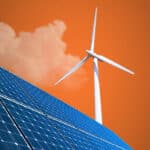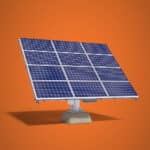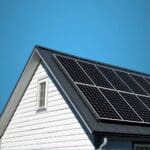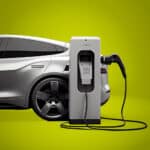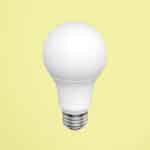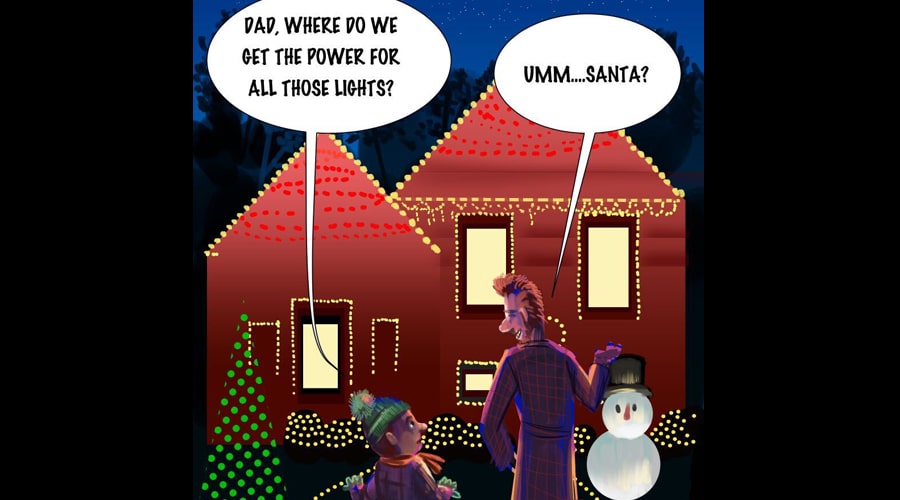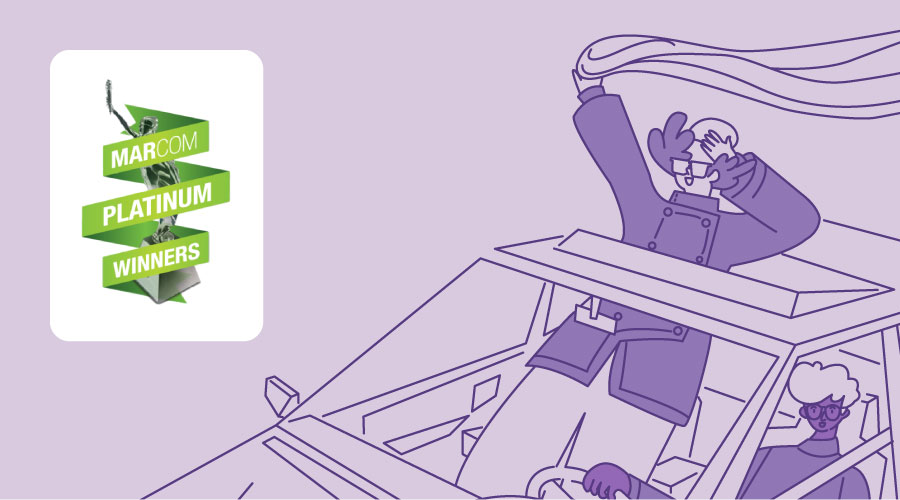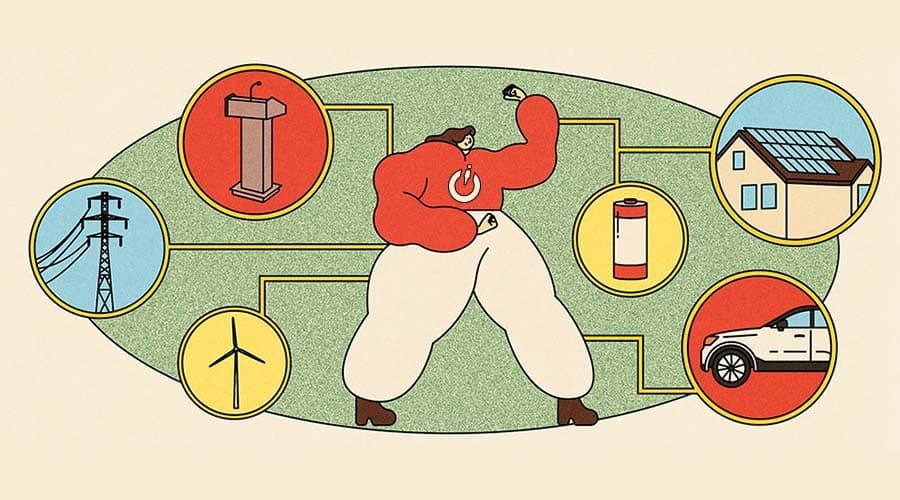Quick—how does your state or region make its electricity? If you’re like most Americans, you’re probably not sure. For most of us, our awareness of energy extends as far as our utility bill and not much further. As we prepare to enter 2021, here’s a public service announcement: we’re in the midst of an all-hands-on-deck mobilization to 1) transition to a clean energy economy and 2) tackle the climate crisis. As a consumer, citizen, and constituent, you might be surprised about how critical a player you are.
The reality is, most of us just don’t spend a lot of time thinking about energy and we don’t have a good understanding of how it all works. A lot of us conflate energy with electricity, even though electricity is only one of many forms of energy. For example, it’s common to think that our biggest energy guzzlers are everyday electricity-powered items like computers, TVs, lights, washing machines, and fridges. Although some of these things are indeed power hogs, studies show that, in fact, our biggest energy uses as individuals relate to how we heat our homes and how we move around (especially flying on planes and driving cars). So, while turning off the lights is beneficial, a climate jedi it does not make you.
So, what can we do to make a difference on energy—a real difference? We need to prioritize actions in our homes, communities, and government that will move the needle in a meaningful way.
A few ways to get in the game
- Get educated. Get better informed about our energy system and which levers will yield the greatest impact. Gen180’s Boot Camp equips you with the knowledge, motivation, and skills to effectively make change happen in your community and beyond. Find videos, podcasts with industry experts, curated resources, and more. Browse at your own pace or subscribe to have Boot Camp delivered to your inbox over the course of six weeks.
- Adopt high-impact solutions and behaviors in your own life. Among the most effective actions you can take, as identified by Project Drawdown and other science-based analyses are switching to an electric vehicle (for those that need to drive), powering your home with solar, and flying less.
- Get active in your community. Your personal life can be a great place to start, but don’t stop there. Help accelerate your community’s transition to clean energy by helping your neighborhood schools go solar, advocating for electric buses, or starting a “Ready for 100” campaign in your city.
- Be an active constituent for clean energy. Remind your elected officials why you voted for them. Voting for clean energy is crucial—but so is making sure they follow through on their promises.
As we enter 2021, it’s time to get off the sidelines and get in the game, moving from bystanders to active participants in the massive transition to a clean energy future.
